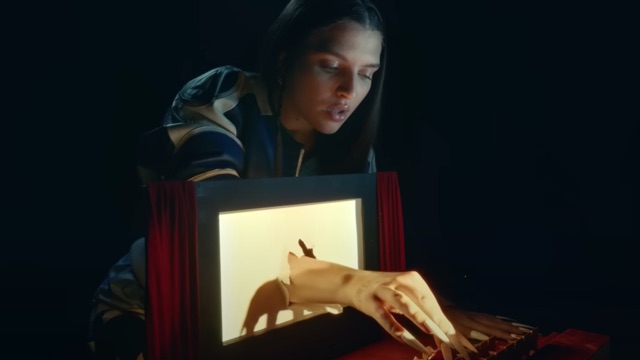There was a moment almost a decade ago whilst on a work trip to Vancouver when my British accent sent shivers down a Canadian’s spine. Overhearing my conversation with a colleague in a coffee shop, said Vancouverite leant over and unashamedly asked me to say one word.
That word was “teapot”.
After uttering it somewhat timidly the first time, she then instructed me to repeat it, over and over, whilst a huge grin spread across her face. “I’m sorry,” she interjected after what was an uncomfortable length of time, “but I just love the British accent”. It was the first time that I considered my accent – my audible passport if you will – to be an asset, and it’s telling that it took thirty years for it to even occur to me.
This speaks of a nation eternally at odds with its national identity and, as anyone who has watched the United Kingdom’s Eurovision Song Contest fans’ reaction videos to Mae Muller’s entry for the UK this year would attest, one that weighs the country down to his day. It’s an affliction that begs the question…
Can the United Kingdom’s fans ever truly see their entry for its merits, or must it always be viewed through a lens of disappointment, crippling levels of doubt, and as the Song Contest draws nearer inescapable depression?
In truth, drawing any sort of conclusion that holds water has not been all too easy to do since the UK’s last victory 25 years ago with ‘Love Shine A Light’. In that quarter of a century, the number of entries that, with hindsight, deserved praise can arguably be counted on one hand. Sam Ryder’s success last year, however, has already been written into British Eurovision history and serves as the ultimate barometer test.
The bulk of Europe saw ‘Space Man’ as a quality song coupled with a fantastic performer and supported by the kind of staging usually exclusively reserved for winners – a view that thanks to Sam’s performance on the night, has now almost universally been accepted as fact across the UK. Wind the clock back to the song’s big reveal, however, and even the UK’s biggest optimists struggled to seriously consider Sam stood a chance at taking home the title in Turin, even when those in Europe were singing its praises from the get-go.
We Ain’t Never Gonna Be Respectable
Since the BBC handed responsibility for picking an entry initially over to BMG and now TAP Music, talk has centred on the idea of “respectability”. While the biggest question surrounding the UK’s first five decades in the competition was just where in the top five the song would finish, the nation’s reputation with the Song Contest has shifted in recent decades to one of shame; the UK doesn’t take Eurovision seriously, continental fans would – with much merit – argue and, as a result, every song the BBC sent across the Channel was an embarrassing afterthought.
Whether a double act singing suspiciously out of key or a fast-fading star’s unloved album track, UK Eurovision fans quickly became accustomed to finding another country to root for and almost disowning their country’s entry by default (all whilst more casual observers would, with little knowledge of or hunger for the competition, demand 12 points from every country regardless of whether they actually rated the UK’s song or not).
The last two years, however, have taken those cynics amongst the fanbase aback. ‘I Wrote A Song’ may be a very different beast to ‘Space Man’ superficially, but it’s arguably cut from the same cloth; a talented new artist with a song penned by their own hand that reflects the UK music scene of today and will be performed by someone who seems genuinely delighted to be representing her home in the Contest. Indeed, the absolutely excellent video that accompanies the three minutes boasts the kind of budget and artistry that perhaps even Sam’s effort last year lacked.
But Do We Like Like It?
Nevertheless, you can always count on some in the UK Eurovision community to find fault with their home entry, right up until the moment when they actually take to the stage. The bone of contention this year is the ‘spoken bridge’, Mae’s declaration of strength that features in the video version (but, interestingly not, not the actual single release) just before the final chorus. UK reactors on YouTube tended to grimace at this part, hearing Mae’s luscious London tones and cringing instinctively from beginning to end.
Here’s James Besanvalle for Metro: “Don’t even get me started on the speaking breakdown towards the end. ‘I’m better now, I burned the bridge,’ she says in her warm north London accent. ‘Raising a glass, taking a sip.’
The wordless chant in the chorus is a Eurovision staple designed to transcend any language barrier, and its uptempo waltzing rhythm is also a Europop trope,” notes Alexis Petridis, “[it’s] reminiscent of Mediterranean holiday hits such as Mr Saxobeat.”
“I don’t like this part,” offers Wiwibloggs’ Deban the moment Mae starts to speak. “No. Not for me. A spoken word Middle 8?” he continues, adding that it’s the one part of the song he “didn’t care for”. It’s an attitude that crystalises the pained grimace that tends to adorn UK Eurovision fans whenever they watch their home entry for the first time.
Cross the English Channel and head out into Europe and Australia, however, and watch the reaction videos from our European cousins, and the response is quite different. “This spoken British accent in a pop song has tradition,” says vocal coach Jane Comerford, reacting on German Eurovision broadcaster ARD’s YouTube Channel. “One thinks of the Spice Girls – they liked doing it. This has to be one of my favourites.”
“I didn’t expect that bridge. I did not expect that bridge,” beams Australian Music Teacher “The Muser Resolute” whilst evaluating all the Eurovision entries. “It was like a kinda sing-rap, and you really had that British accent coming through as well which made it really sassy – it was great.”
History Repeating
In general, the UK community agrees that ‘I Wrote A Song’ is respectable but nothing special. Yes, even after Sam’s success last year, the best praise most Eurovision fans across Blightly can bring themselves to award Mae Muller is that she’s unlikely to embarrass us. That’s the limit. That’s their pinnacle. No talk of winning or even challenging, but just a confirmation that we won’t be sent home packing from Liverpool with rotten tomatoes hitting the stage as Mae sings her final note. Indeed, it’s not a coincidence whatsoever that this was, on the whole, the general reaction from this group to Sam Ryder’s ‘Space Man’ after the video reveal a year ago.
In contrast, reactors from the rest of the world, however, are keen to label this a “bop”, with many marking it as a contender not only for the Top Five, but to win. The crucial moment? Mae’s proud prose as the camera pulls back and her hand bursts through the cinema screen.

Mae Muller, ‘I Wrote A Song’ music video (photo: YouTube)
For Brits, it’s a moment of weakness; the part of the song when Mae’s nationality is placed front and centre and any attempt to slip under the radar is well and truly thrown into the waste bin. For Europeans, said spoken segment is Miss Muller’s “teapot” moment. Her accent sounds contemporary and almost chic to the overseas ear, standing as the perfect example of one of the Eurovision Song Contest’s key pillars; the ability of competing nations to communicate their respective culture in a way that entices outsiders, rather than ostracises them.
As things stand, however, the chip on the United Kingdom’s shoulder still dominates the nations’ collective thinking when it comes to the Song Contest, resulting in an inability to truly celebrate its role in a party it’s due to host in just a matter of weeks. My prescription? I encourage my fellow countrymen and women to dine out on it a little. Enjoy the praise. Be proud of the entry. Celebrate the contest. Accept our small, newfound, but nevertheless fundamental role in being part of what has made the Contest so special over the last two years. In short, shout out “teapot” repeatedly until the Canadian salivating at your side tells you to stop.
And, if you can’t do that, cancel your plans for Saturday, May 13th this year. Sell those tickets for Liverpool and book a flight to Vancouver instead. You’ll thank me later.










I like the song and think it will do pretty well. As long as the staging isn’t too focused on a box with a hand in it or hanging trumpets. We just need some good vibes and it won’t be a zero point year. Good article, I enjoyed reading this and it’s a refreshing take on things.